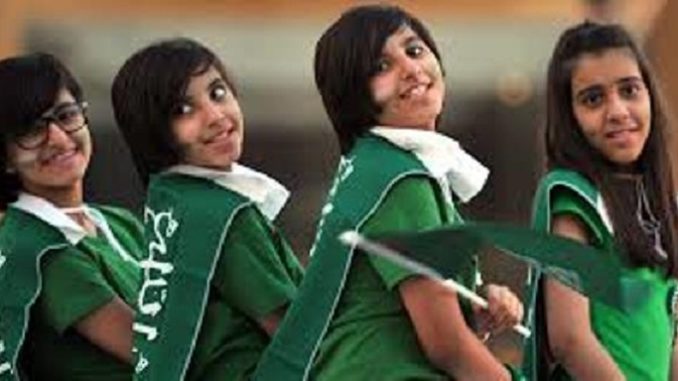
Saudi Arabia’s women are rising up to take on their oppressors – at least according to a comic that was recently presented in the ultra-conservative Islamic kingdom.
“The ruling monarchy had a sick plan for your demise, but as you will soon see, not every woman can be suppressed,” says the comic, which is entitled “The Saudi Girls Revolution.”
Girls? Revolution? Saudi Arabia? – three terms that in combination should really set the alarm bells ringing in Riyadh.
In fact, the person behind this is a scion of the Saudi royal house.
The heroines created by the author, Prince Fahad al Saud, are symbols of resistance and the emancipation of women.
Their aim is to push the boundaries of the permissible in one of the world’s most conservative societies.
“I did actually expect that there would be problems, and I’m sure that could still happen, once the comic gains a wider public,” says Al Saud, who is one among hundreds of princes of the huge ruling family in the country.
He regards the “Saudi Girls Revolution” comic as avant garde, but uncontroversial. “To be honest, I’m a bit disappointed. I thought I would have to fight more,” Al Saud says.
Prince Fahad’s story presumably was not banned by the censors, as they did not seek further provocation.
The heroines, like Latifa and Thara, play out their roles 100 years into the future in a Saudi Arabia depicted after a world war in which everything has been destroyed. It has very little to do with the state as it is today.
The provocative title was unintentional, the prince insists. The “revolution” refers rather to how the Arab women are presented, by representing them as strong and self-confident.
Prince Fahad reveals that he was brought up by very strong women, but when he moved to the United States he noticed that how Saudi women were perceived there was very different.
Human rights organizations were critical of the control that men in the kingdom exercised over women. They note that every Saudi woman has a legal guardian – her father, her husband, or even her son – and she has to get their permission to be able to travel or to get married.
Despite a series of limited reforms over recent years, women are still not permitted to drive. And the religious police keep a close watch to ensure that women are fully veiled in public.
Nevertheless, society in the country is undergoing change, even if only slowly.
Several women were recently appointed to senior banking positions, and Saudi Arabia’s ambitious reform programme for the years ahead, Vision 2030, refers to women as one of the country’s major strengths.
More than 50 per cent of university graduates are women.
“We will continue to develop their talents, invest in their productive capabilities and enable them to strengthen their future and contribute to the development of our society and economy,” the Vision 2030 programme says.
Projects like “The Saudi Girls Revolution” are also intended to contribute to gradual societal change, but the comic has not been taken up by the Saudi mainstream.
This could be because the stories are aimed not only at Saudis, but more generally at Arabs and non-Arabs across the world.
And they are written in English and so are inaccessible to a large segment of Saudi society.
Prince Fahad’s comic was presented at the first Comic Convention in the kingdom, held in Jeddah in February. The city on the Red Sea coast is seen as comparatively liberal.
Amr al Madani, head of the country’s entertainment authority, which supported the event, saw it as a success.
“The overwhelming number of people and families who came … shows the potential for putting on popular events of this kind in our country,” he said.
In total more than 20,000 mainly young Saudis came to the exhibition halls, which had two entrances – one for men and the other for women.
Source – dpa
